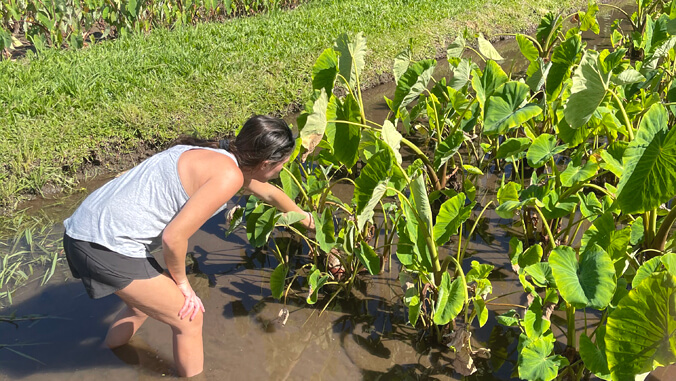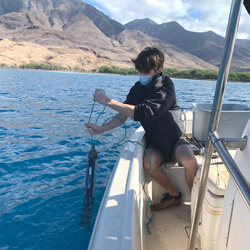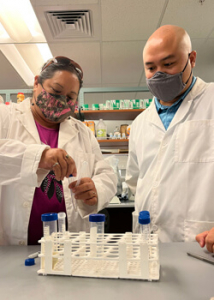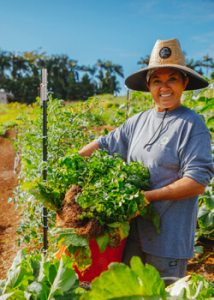
The University of Hawaiʻi recently received a total of $1.9 million from the federal government to promote and strengthen its ability as a Native Hawaiian-serving institution to carry out education, applied research and related community development programs broadly within food and agricultural sciences. The three grants are from the U.S. Department of Agriculture’s National Institute of Food and Agriculture, which was established in 2008 to find innovative solutions to issues related to agriculture, food, the environment and communities. Two grants went to UH Mānoa and one went to UH Maui College.
“This funding is an important investment in the future of Hawaiʻi’s food and agriculture system, and the Native Hawaiian communities that have been stewards of the land for centuries,” Sen. Mazie Hirono said in a release. “UH’s programs, like GoFarm, play an important role in teaching and training the next generation of individuals who will care for the land and be responsible for strengthening Hawaiʻi’s sustainability practices. I am glad that this funding will be used to support our local economy, develop our workforce, and engage members of the Native Hawaiian community as we work to protect the land and feed our communities for years to come.”
Grants and excerpts of their descriptions


Hawaii-One-Ag 2022: Enhancing Agricultural Education at the University of Hawaii ($999,970)
“The goal of Hawaii-One-Ag is to engage increasing numbers of Hawaii residents in post-secondary education. Educational opportunities in agriculture and environmental management are available at almost all UH colleges and universities. Our plan to better connect and articulate these opportunities will provide prospective students with pathways to obtaining degrees and employment in rewarding careers.”
ʻIke Kupuna: Integrating Traditional Knowledge Into Natural Resource Sciences ($475,000)
“The health of island communities and cultures depends on the quality and abundance of water resources. However, managing our limited water resources in the face of growing pressures such as a rising population, land-use changes and climate change, is challenging. In addition, there is a need to increase indigenous peoples’ participation in the management of their natural resources.
ʻIke Kupuna: Integrating Traditional Knowledge Into Natural Resource Sciences, will combine education and extension with a focus on traditional ecological knowledge (TEK) and practices to broaden participation in the Food, Agriculture and Natural Resources (FAN) sciences and ensure the perpetuation of Maui’s water resources. ʻIke Kupuna will focus on curriculum design, student experiential learning, and student recruitment, retention and educational equity. ʻIke Kupuna will build self-sufficiency in the indigenous grower community by offering a training program and resources for water quality monitoring. In total, this project will directly impact 53 people, of which 45% will be Native Hawaiian.”
GoFarm Hawaii (GFH): Growing Hawaii’s Agricultural Workforce and Industry ($440,000)

“This Integrated Research, Education and Extension project will help improve Hawaii’s local economy, reduce its dependence on imported food, and increase food sustainability by educating and developing the local agricultural workforce. GoFarm Hawaii (GFH) prepares students for careers in food, agriculture, and natural resources by offering a certificate-based farmer training program that provides a non-traditional, experiential education pathway for adult learners. GFH also provides business technical assistance to existing and aspiring farmers.
This project will improve GFH‘s beginning farmer training by enhancing its curriculum and leadership training. Educational opportunities for farmers will be expanded through a series of courses that include growing Native Hawaiian Canoe Crops, increasing farm revenue opportunities, and improving farm skills. GFH will increase its support of Native Hawaiian (NH)/ Underrepresented (UR) community on Molokai and staff will deepen its agricultural and cultural knowledge. GFH will increase networking and outreach with NH/UR communities. Leadership opportunities for students, GFH staff, and its network will also be added. The project activities have statewide reach, fill identified needs, and create immediate economic and food system impact.”

